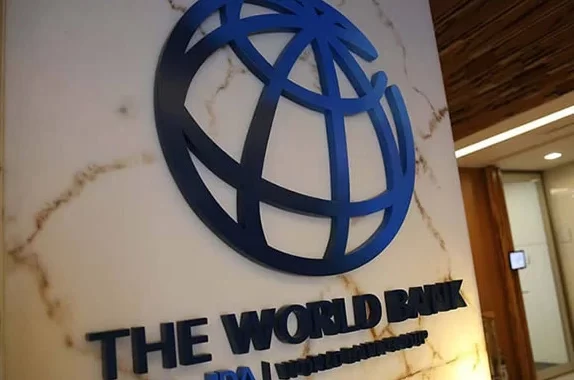Even though Nigeria get plenty natural resources, di World Bank don talk say more Nigerians go enter poverty before 2027.
Dem yarn dis one for dia Africa Pulse report wey dem release during di ongoing Spring Meetings of di International Monetary Fund (IMF) and World Bank for Washington DC, USA.
Di report show say Sub-Saharan Africa na di place wey get di highest number of people wey dey suffer extreme poverty for di whole world, and most of dem poor people dey inside few countries.
Di World Bank talk say about 80% of di estimated 695 million people wey dey live in extreme poverty for di world in 2024 dey for Sub-Saharan Africa. South Asia get 8%, East Asia and di Pacific get 2%, Middle East and North Africa get 5%, while Latin America and di Caribbean get 3%.
“Inside Sub-Saharan Africa, half of di 560 million people wey dey live in serious poverty for 2024 dey inside just four countries,” di report explain.
Dem talk say countries wey no get plenty natural resources dey reduce poverty faster pass countries wey get resources.
Wetin concern Nigeria be say, according to di World Bank, poverty go increase for Nigeria and Democratic Republic of Congo—two countries wey get plenty natural resources but still fragile—by 3.6 percentage points between 2022 and 2027.
“Poverty for countries wey get resources and still get wahala like Nigeria and Congo go increase by 3.6 percentage points from 2022 reach 2027. Dem be di only group for di region wey poverty dey rise,” di report add.
“Dis na because say when country get resources but still dey fight war or wahala, dem dey get highest poverty rate—average of 46% for 2024, wey be 13 points higher pass resource-rich countries wey no get wahala.”
But World Bank talk say countries wey no get plenty natural resources and no dey fragile don enjoy better poverty reduction since 2000 and even balance di poverty gap with other countries by 2010.
Dem also explain say most people for Africa and most of di poverty still dey for rural areas, but say fast urbanisation fit help reduce poverty if everything dey properly arranged.
Between 2010 and 2019, na movement to town from village (urbanisation) wey mostly help reduce poverty, no be say poverty really reduce for either town or village areas.
Dem conclude say even though only 41% of Africans dey live for town for 2020, dem estimate say di number go increase by over 238 million by 2035, wey go make people wey live for town plenty pass those wey dey village.
But di success of dis movement depend on if town areas fit provide enough roads, houses, services and jobs to support di new people wey go enter.



